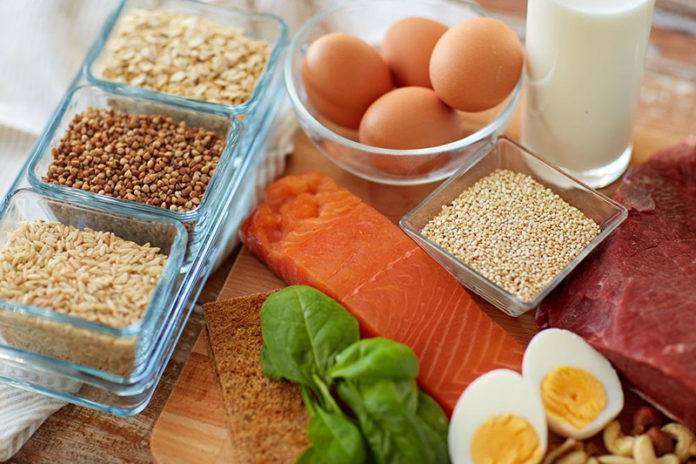Eat more protein! It doesn’t matter how much fat and sodium it contains! Wait, scratch that. Only eat plant-based protein. And don’t eat TOO much protein. Whew. This nutrient has had no lack of attention or opinions surrounding it.
How much protein should you consume each day? Individuals who live, eat, and breath physical training will tell you one thing. Doctors and other specialists may tell you another. The USDA recommends that you consume approximately 5.5 ounces per day. It’s hard to know who to listen to.
How Much Do You Need?
In my post How Much Protein Should I Eat Each Day? I recommended 0.36 to 0.6 grams of protein per pound. So an individual weighing in at 150 lb would need 54 grams whereas an individual weighing 200 lb would need 72 grams. As you can see the amount needed is not very high. Just keep in mind that the protein content is different than the weight of the food. Always read the labels so you know how much you’re consuming.
Do You Really Need More if You’re Working Out?
To answer this question you need to know your personal goals. Are you working out to lose weight and live a healthier lifestyle? If the answer to this is yes, then I wouldn’t increase the amount of protein you consume. I may suggest that you consider the higher end of the spectrum but the average person should be okay with the suggested amount.
On the other hand, if you’ve met your fitness goal and you want to increase your muscle mass and strength, then I would suggest increasing your protein. Just keep in mind you don’t have to add that much. Try to consume 0.7-1 gram of protein per pound per day.
Animal Protein Vs. Plant Protein
Our bodies run on two different types of amino acids: essential and non-essential amino acids. Your body can produce the non-essential ones. In other words it’s essential that you get these others from food or supplements. The remaining amino acids must come from food, whether animal or plant protein. While meat is higher in fat it has all of the remaining amino acids you need. Plants like spinach and beans are high in the some of the amino acids but do not contain all of them. A few plant-sources, like soy and quinoa contain all of them. If you forgo animal protein altogether, make sure you eat a variety of plant-based foods to cover all of your nutritional bases.
Do You Really Need Protein Powders or Supplements?
When you walk into a gym how many people do you see drinking a protein shake while they work out? You may notice quite a few. The benefits of protein after exercise is no myth. I suggest consuming some kind of protein within 30-45 minutes post workout. This will help repair microtears, build lean muscle, and leave you less achy the next day. That doesn’t mean you need to down a 20-ounce protein shake the moment you’re done.
A study by the University of Montreal showed that before consuming protein powder, “No less than 81 percent of athletes taking supplements already had sufficient protein from their diet.” Their conclusion? “Protein supplements don’t improve performance or recovery time.”
Many of the individuals taking supplements don’t research the ingredients. They end up with greater levels of vitamins and minerals, such as sodium and iron, than healthcare providers recommend.
If you like the taste of your protein powder shakes, I suggest using them as more of a quick meal when you’re in a hurry. For your post-workout snack, I recommend half a cup of cottage cheese with fruit, or toast and peanut butter. Combining these proteins with carbohydrates gives you more energy and quickens recovery time.
Protein has gained a lot of media attention in the recent past due to the popularity of low-carb diets and intense workout routines like Crossfit. Unfortunately, this has led people to believe that they aren’t getting enough of it. The truth is they’re probably getting too much protein. If this is a concern of yours consider starting a food diary. This way you can track your exercise vs. protein intake. Either I or a nutritionist will be able to help you determine whether you need more or less protein in your diet.








